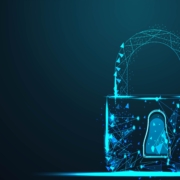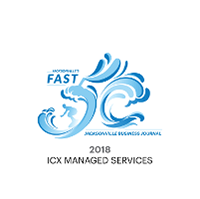A Guide for Protecting Online Privacy
In an era where digital interactions are woven into nearly every aspect of our lives, safeguarding online privacy is more critical than ever. Cyber threats, from phishing scams to data breaches, continue to grow in sophistication, putting personal and business data at constant risk. At Level 10 Solutions, we are committed to empowering individuals and businesses with the knowledge and tools needed to protect their online privacy. Here’s a guide to help you stay safe and secure in the digital world.
Recognize the Importance of Data Privacy
Understanding the importance of protecting your personal and business data is the first step in achieving online privacy. Information such as email addresses, phone numbers, banking details, and even browsing behavior is valuable to hackers and other malicious actors. This data can be exploited for financial gain or to carry out identity theft. Knowing that every online interaction may impact your privacy can help you develop a stronger commitment to safeguarding it.
Adopt Strong Password Practices
Using strong, unique passwords for each online account is essential. Avoid common passwords and use a mix of uppercase and lowercase letters, numbers, and special characters. Password managers can be invaluable, as they allow you to store complex passwords securely, reducing the temptation to reuse or simplify them across platforms.
Enable Multi-Factor Authentication (MFA)
Multi-factor authentication (MFA) adds an extra layer of security by requiring two or more forms of identification before granting access. Enabling MFA wherever possible, especially on sensitive accounts such as email and financial services, significantly reduces the likelihood of unauthorized access even if a password is compromised.
Limit Personal Information Sharing on Social Media
Social media profiles often contain a wealth of personal information that can be used to compromise security. Sharing details like birthdates, addresses, or travel plans can expose you to unnecessary risks. Adjusting your privacy settings to limit who can see your information—and being selective about what you post—can prevent this data from falling into the wrong hands.
Use a Virtual Private Network (VPN)
A Virtual Private Network (VPN) encrypts your internet connection, making it harder for hackers to access your data when you’re using public Wi-Fi. Using a VPN is especially important if you regularly conduct sensitive activities online, such as online banking or remote work on unsecured networks. VPNs provide an added layer of privacy by masking your IP address and encrypting your internet traffic.
Stay Aware of Phishing Scams
Phishing attacks are one of the most common online privacy threats. Phishing emails or fake websites often appear legitimate but are designed to trick you into revealing personal information or clicking on malicious links. Always verify the sender’s identity, look out for suspicious links, and avoid entering sensitive information on sites you don’t fully trust.
Control Your Digital Footprint
Many online services track user behavior, often storing and selling this information to advertisers or other third parties. Regularly reviewing the privacy settings on your accounts—like Google, Facebook, and online shopping sites—can help limit the amount of data collected. Some services also allow you to delete your data history or restrict what is shared with third parties.
Keep Software Up to Date
Outdated software can have security vulnerabilities that hackers can exploit. Regularly updating your operating systems, apps, and antivirus software ensures you’re protected by the latest security patches. Most devices and programs allow you to enable automatic updates, ensuring your system is always up-to-date and reducing the risk of security breaches.
Back Up Your Data
A secure data backup plan is essential for protecting your information in case of cyberattacks like ransomware. Regularly back up important files to an external hard drive or secure cloud storage. Be sure that backups are also encrypted, so your data remains safe even if the backup device is lost or stolen.
Educate Yourself and Your Team
Ongoing education is one of the best defenses against cyber threats. Staying informed about new types of attacks and privacy best practices can help you quickly identify potential risks and avoid them. For businesses, employee training programs focusing on online safety can minimize human error that often leads to breaches.
Partner with Level 10 Solutions for Enhanced Security
Protecting online privacy requires vigilance and a proactive approach. Following these strategies can significantly reduce your risk and enhance your online safety. At Level 10 Solutions, we specialize in providing comprehensive cybersecurity solutions to protect your data and digital presence. Contact us today to learn more about how we can help you safeguard your online privacy and stay one step ahead of cyber threats.
Level 10 Solutions, formerly ICX Managed Services, was founded in 2010 to provide strategic technology leadership and enterprise-level support to small and mid-enterprise organizations in Jacksonville, FL and beyond.
We help our clients improve organizational and individual efficiencies by leveraging a well-managed IT infrastructure, backed by enterprise-level tools and automation, along with expert support and advice from trained professionals. Level 10 Solutions currently supports thousands of users with clients representing the following industries: Finance, Insurance, Legal, Healthcare, Manufacturing, Non-Profit, Faith-based organizations, and Hospitality.








